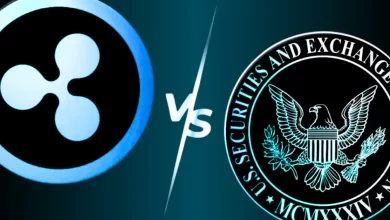Ripple Expands Horizons: Targets $1.5 Trillion IT Services Industry

In a move to redefine international financial transactions in the IT services sector, Ripple has set its sights on the burgeoning $1.5 trillion industry. In its latest publication, “Accelerating Global Payments for Your IT Services Business,” the company explains how Ripple Payments can revolutionize the way IT service providers handle cross-border payments.
Outdated Global Payment Systems
The current state of global payments is laden with challenges. Traditional systems, largely dependent on a decreasing number of correspondent banks, are slow and costly. They take around 2-5 days for final settlements, impose transaction fees that can reach up to $100, and suffer from error rates of 4-6%.
This system forces businesses to contend with opaque payment processes and necessitates pre-funding accounts to ensure liquidity, which ties up crucial capital and creates operational bottlenecks. In regions like India, Brazil, and Mexico, these challenges are even more pronounced, rendering the traditional system significantly less efficient than the solutions proposed by the fintech company.
The Ripple Advantage
The publication outlines several key areas where IT service providers can benefit from blockchain-enabled payments. First, Ripple Payments offers a solution that operates round-the-clock, transcending time zones, holidays, and banking hours.
This system allows for real-time global payments without the need for pre-funding, thus freeing up capital for other areas of business. Yogesh Sangle, Head of Instarem, emphasizes this capability, stating, “Managing a global business across various geographies necessitates the ability to conduct business at any hour, and Ripple Payments perfectly meets this requirement.”
Second, in contrast to the prolonged and costly process of traditional cross-border transactions, Ripple Payments offers a dramatically quicker alternative. Transactions settle in seconds, enabling businesses to respond swiftly to urgent needs, secure potential discounts from vendors, and reconcile payments more efficiently.
Third, traditional cross-border payment systems are often cumbersome and prone to security and efficiency issues due to their complex and manual nature. The company claims to revolutionize this by introducing a level of transparency previously unseen in the industry.
With clear upfront pricing, FX quotes, and complete visibility throughout the payment process, the technology not only enhances the partner and customer experience but also provides a significant competitive advantage. “Ripple Payments delivers radical transparency for every cross-border transaction, marking a stark contrast to the traditionally opaque and error-prone systems,” the guide notes.
Ripple’s Integration For Non-Blockchain Native Businesses
Ripple recognizes the crucial role that cross-border transactions play in business expansion. It aims to enable IT services companies to surpass the limitations of traditional payment providers. By offering a variety of supply chain options, payouts in local currencies, access to a global workforce, and opportunities to enter new markets, Ripple positions these businesses for heightened competitive success.
Ripple has designed its technology to be accessible for companies not originally versed in blockchain. A “straightforward API integration” into existing payment systems can significantly enhance payment options, streamline operations, expand revenue, and provide access to constant liquidity.
It remains to be seen whether Ripple’s attempt to penetrate this new business segment will succeed. No specific new partners have been named.
At press time, XRP traded at $0.56723.

Featured image from Shutterstock, chart from TradingView.com





